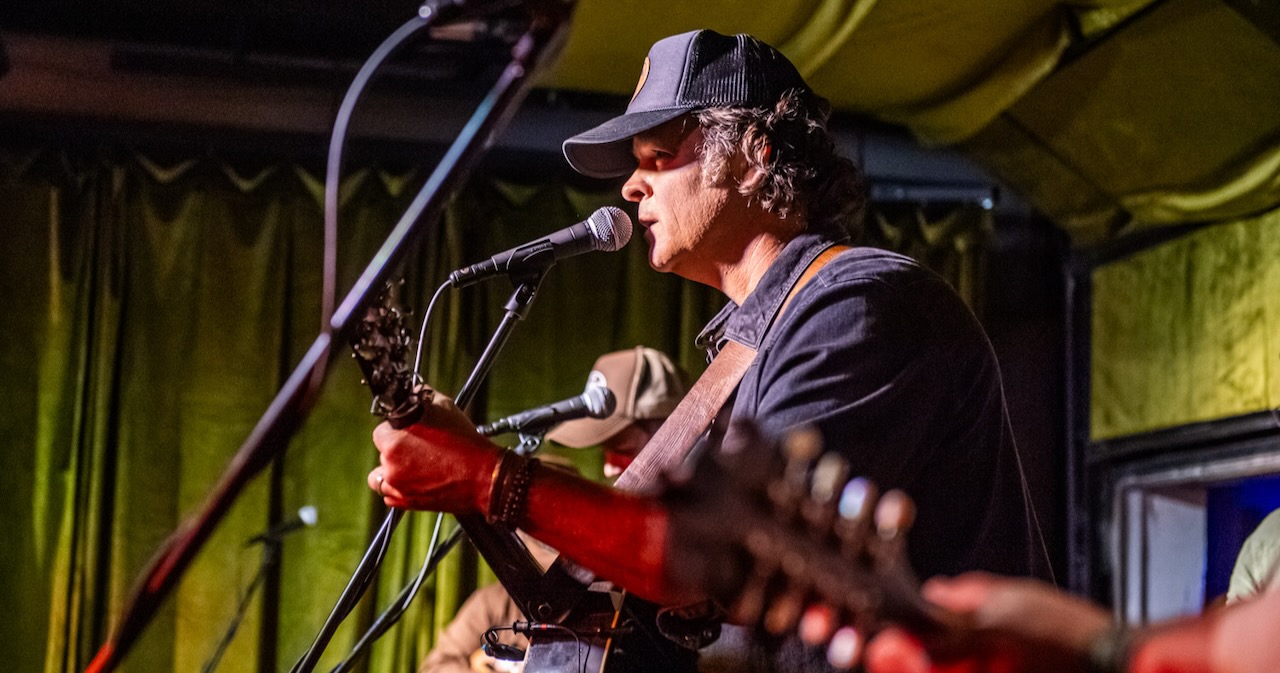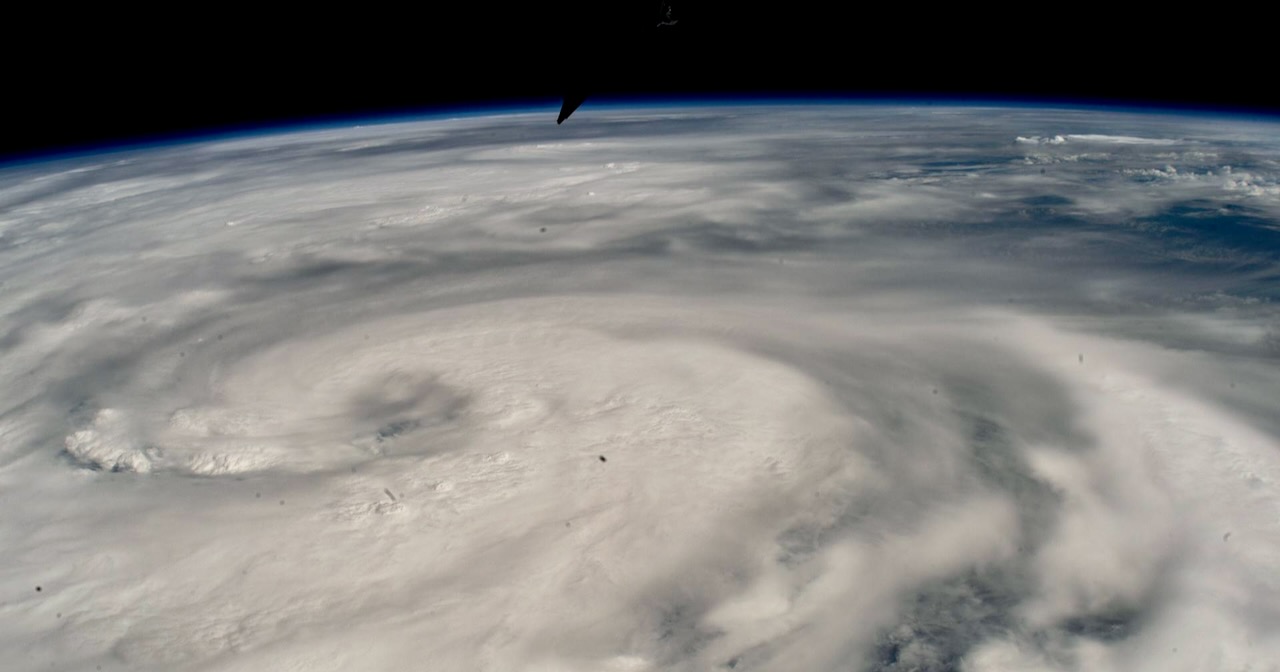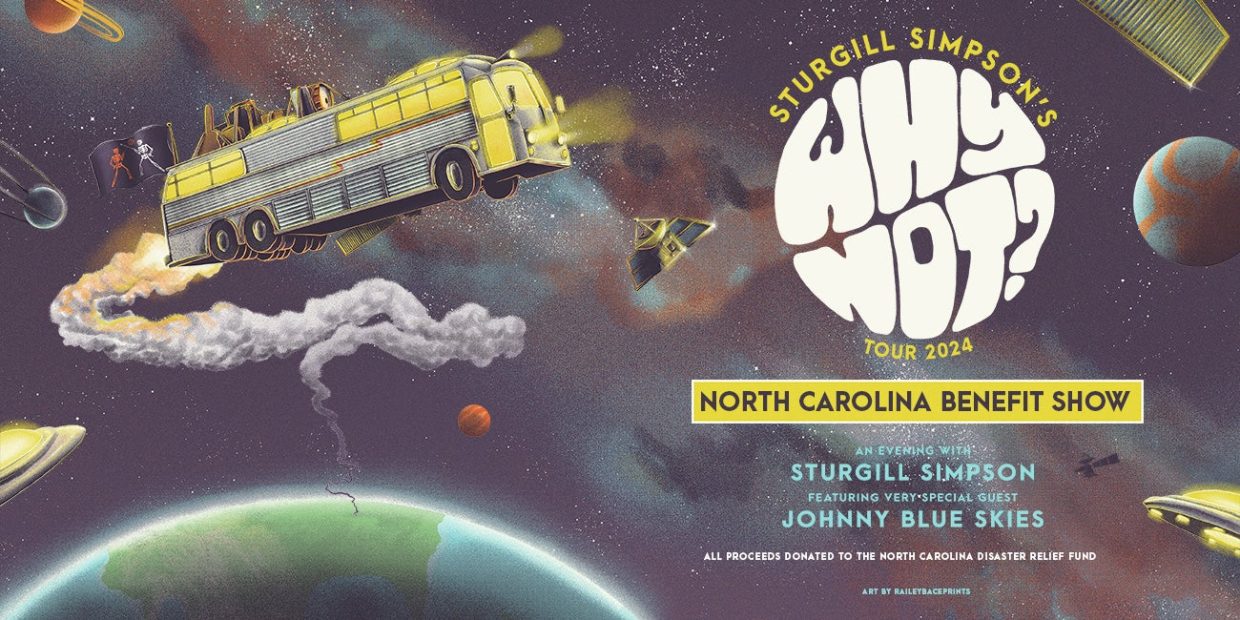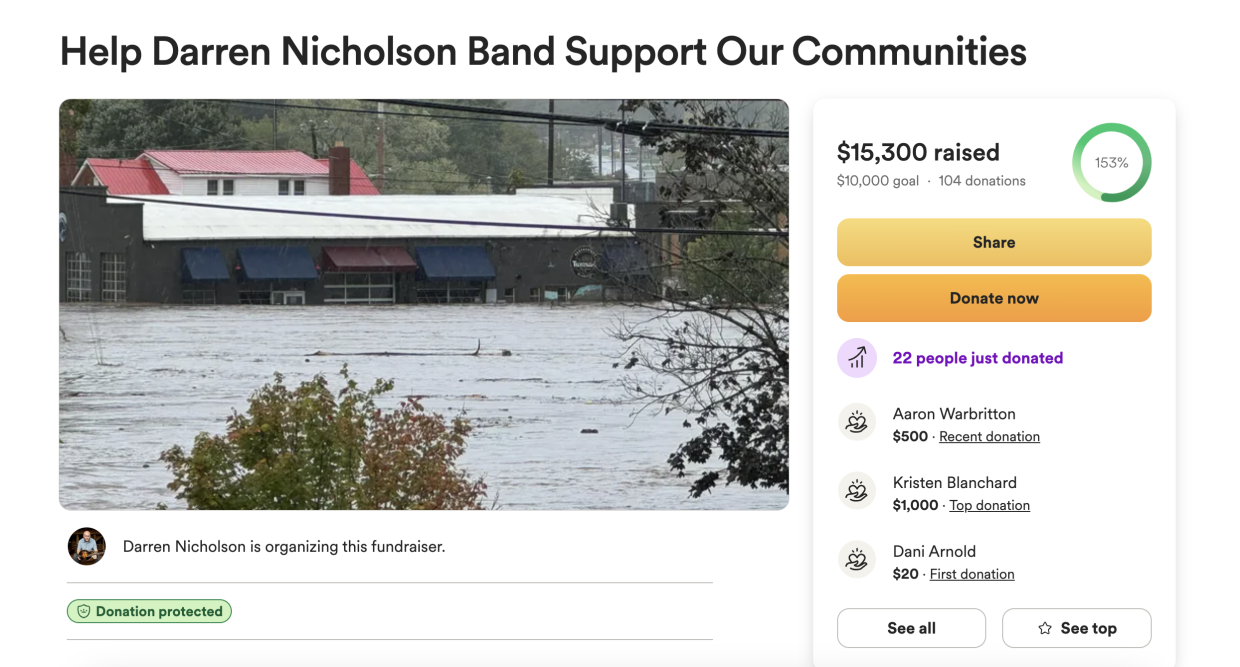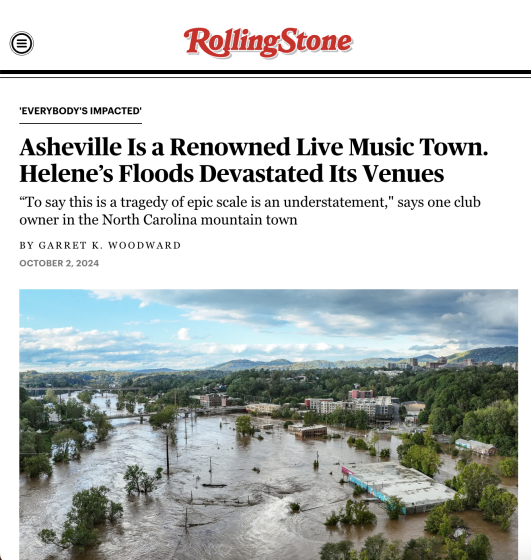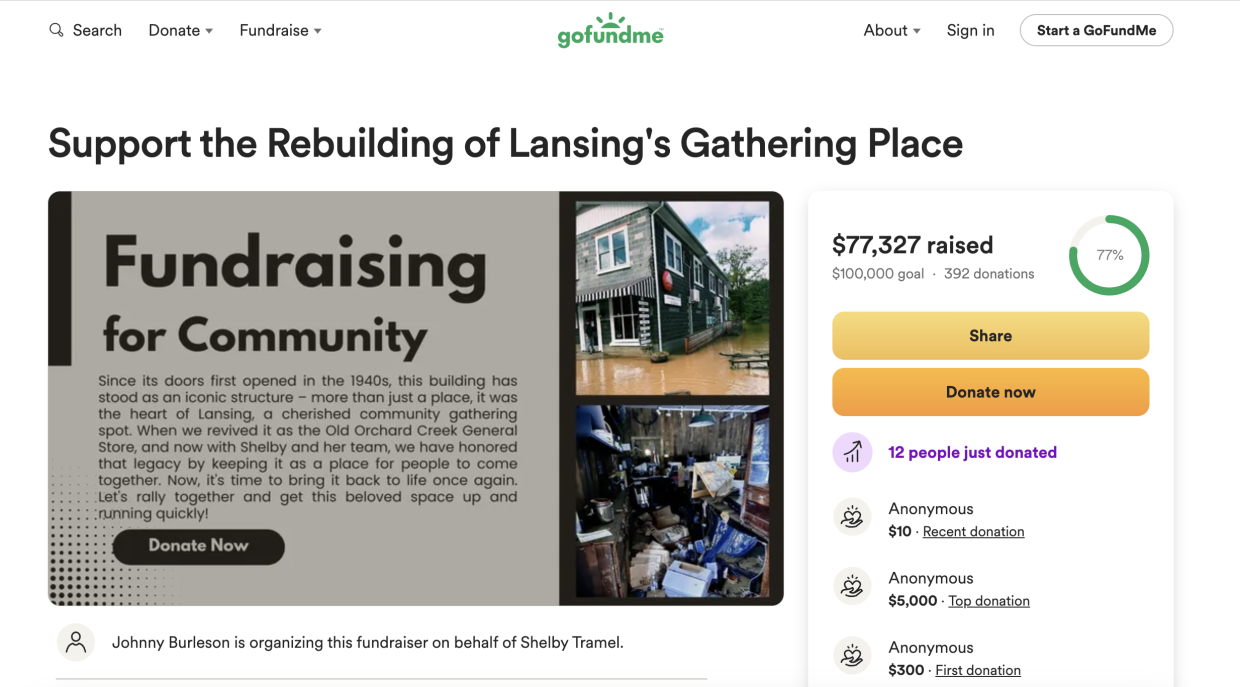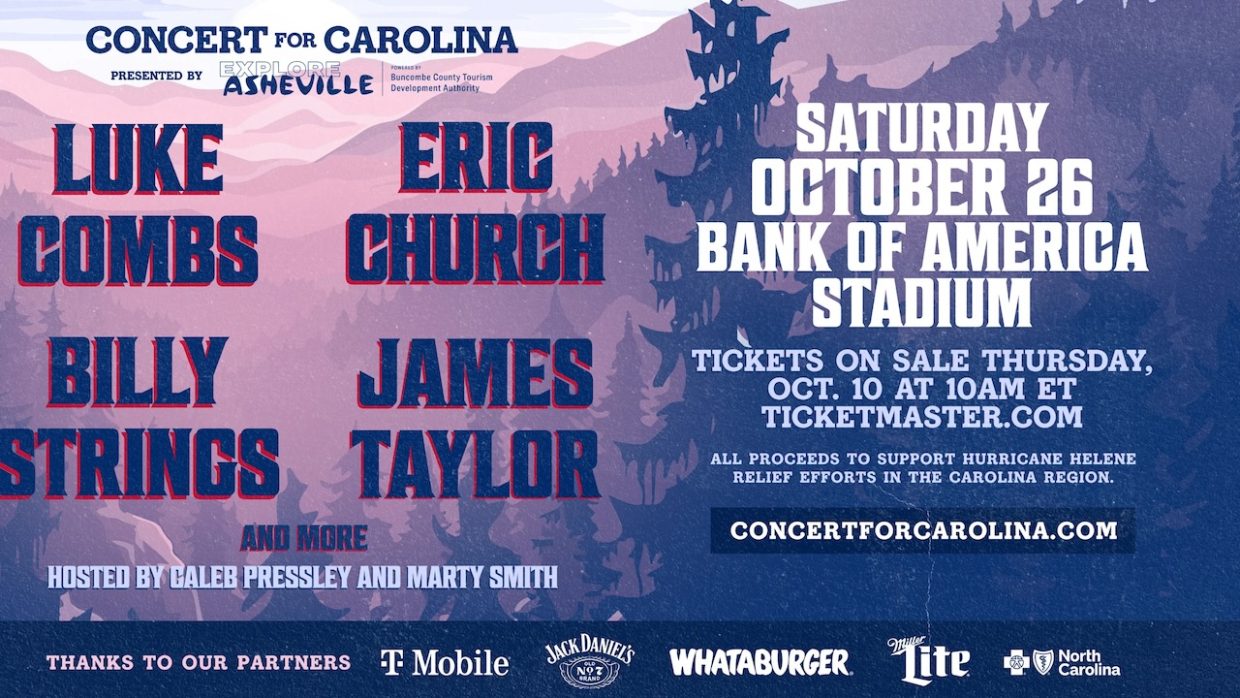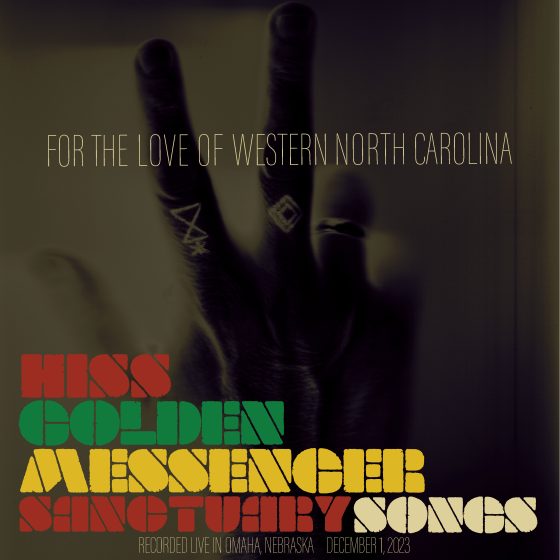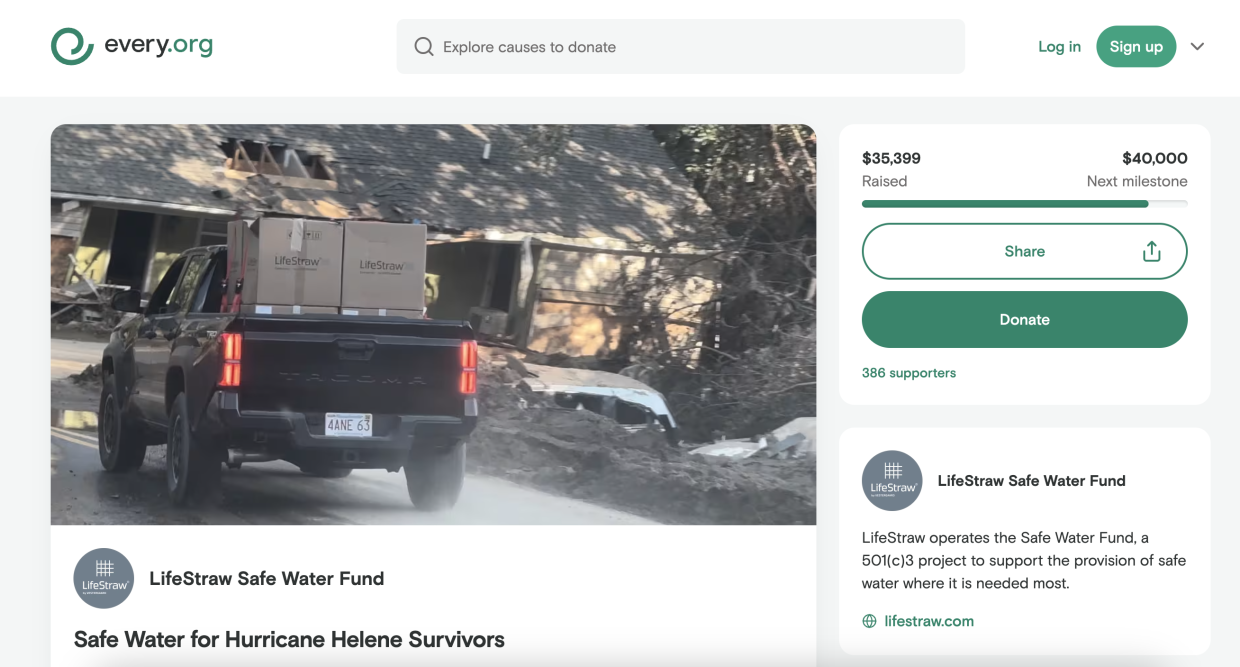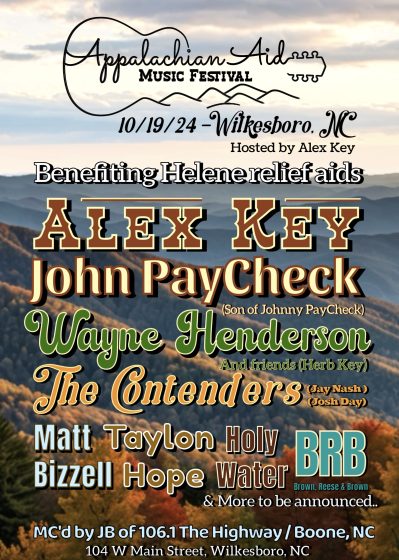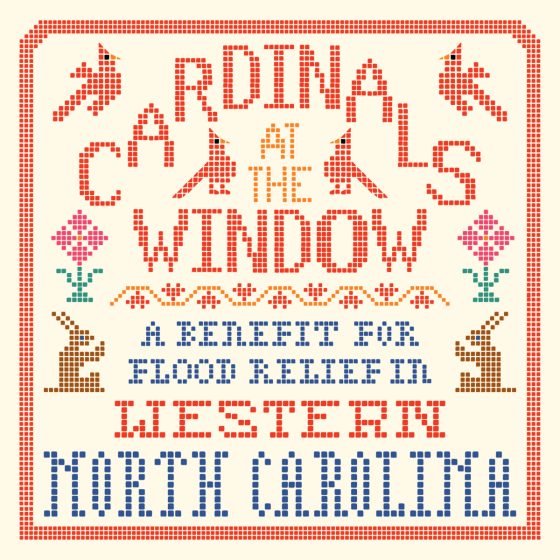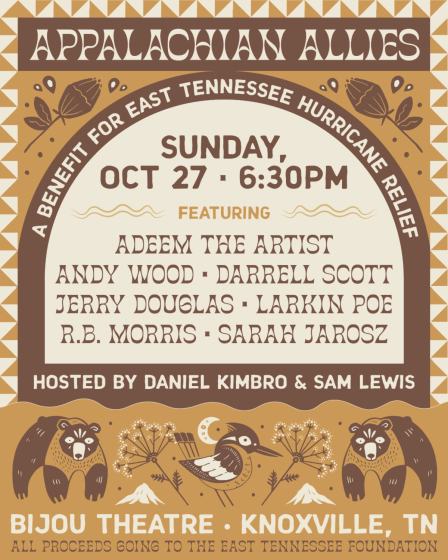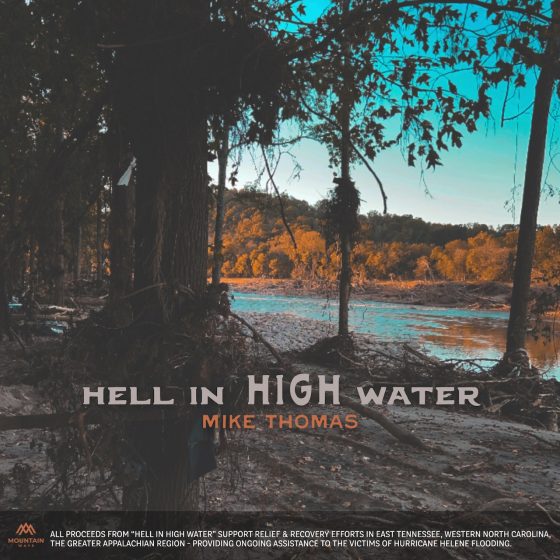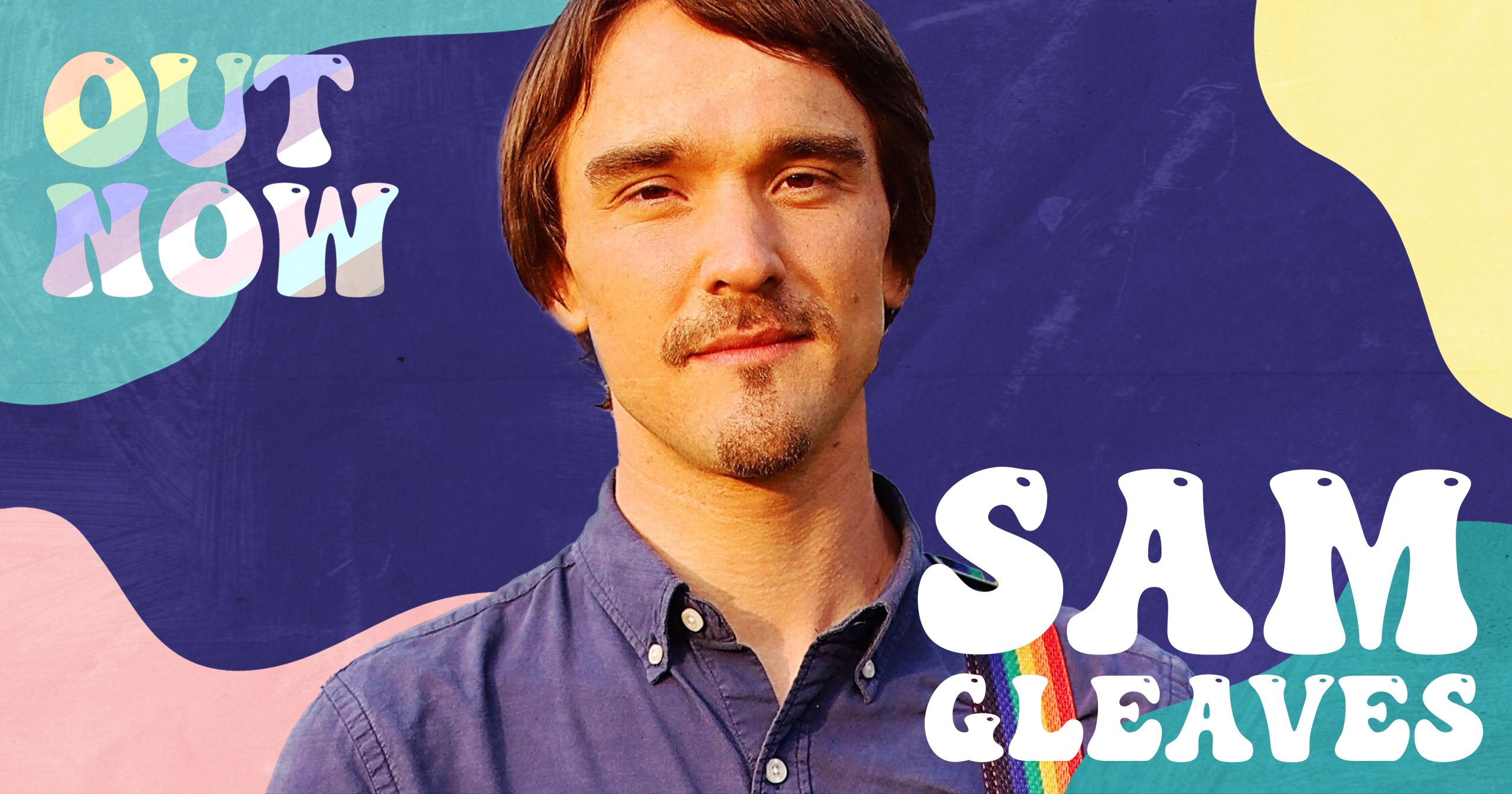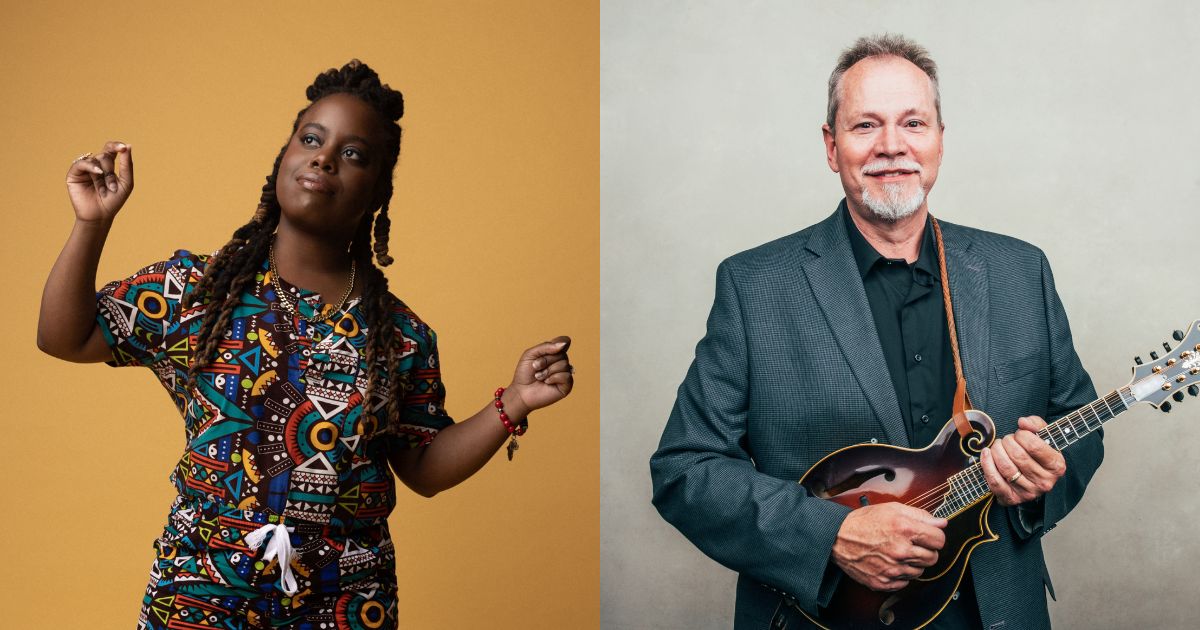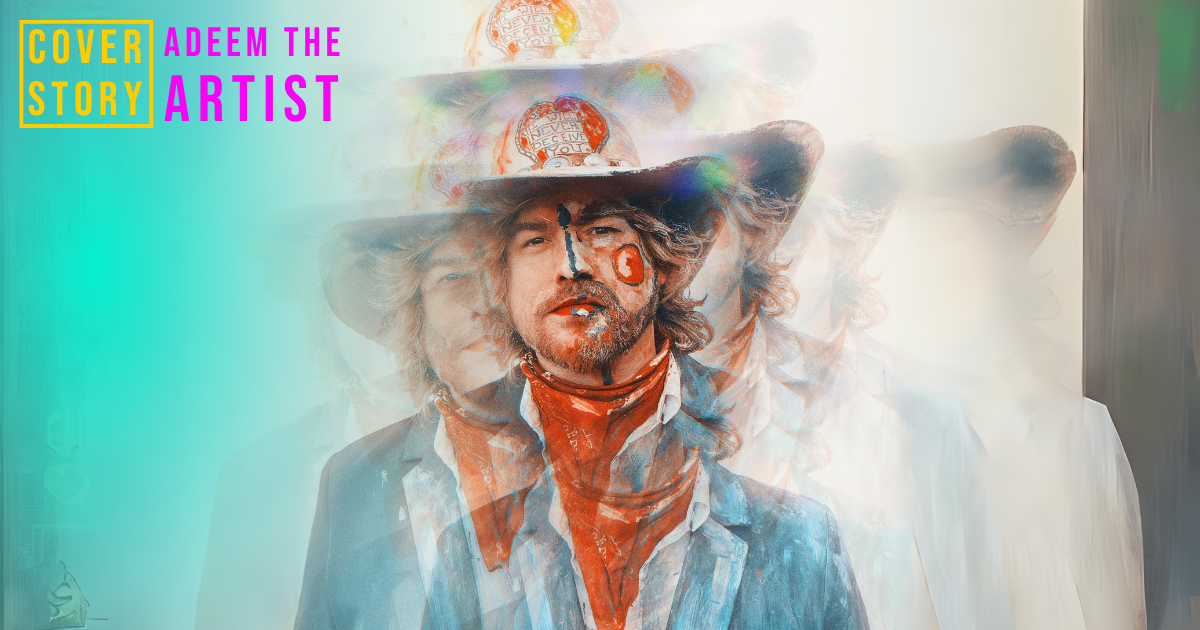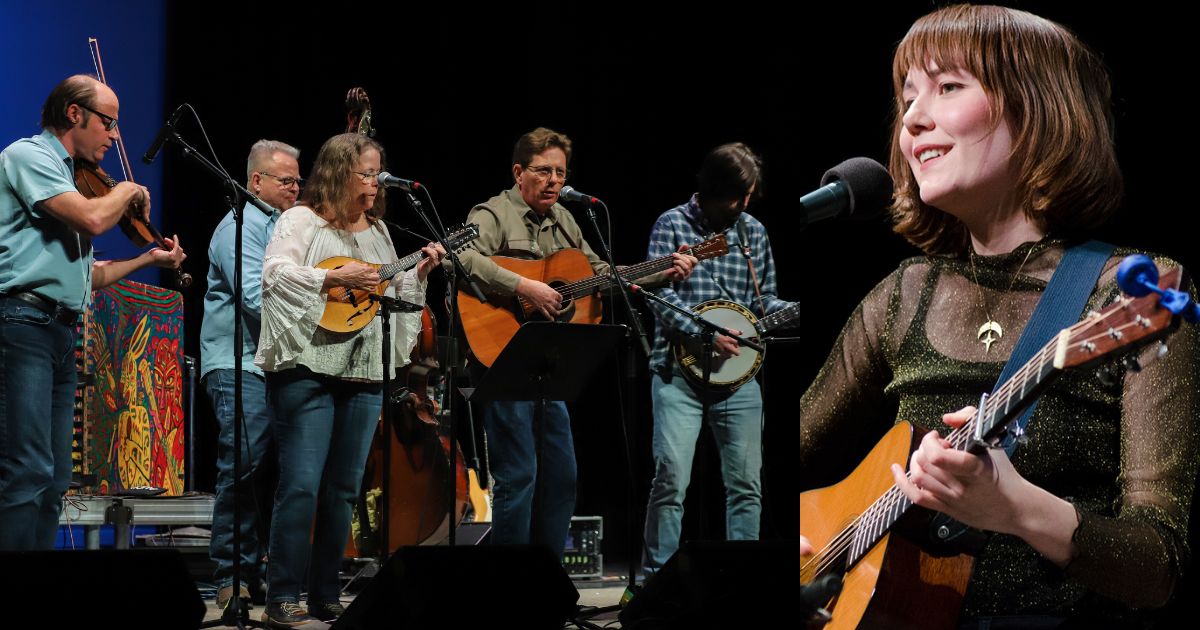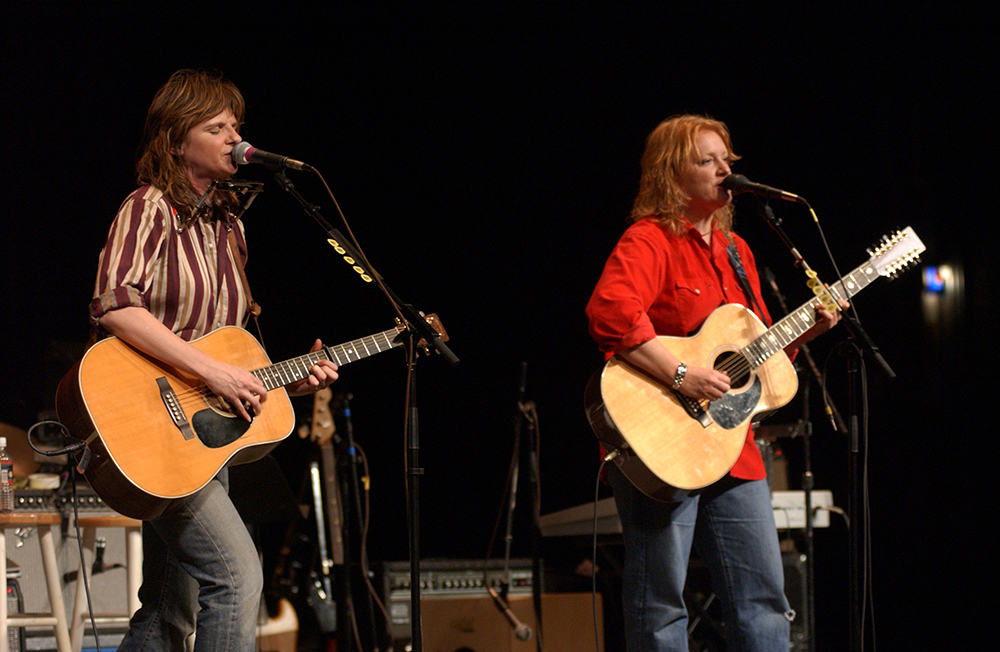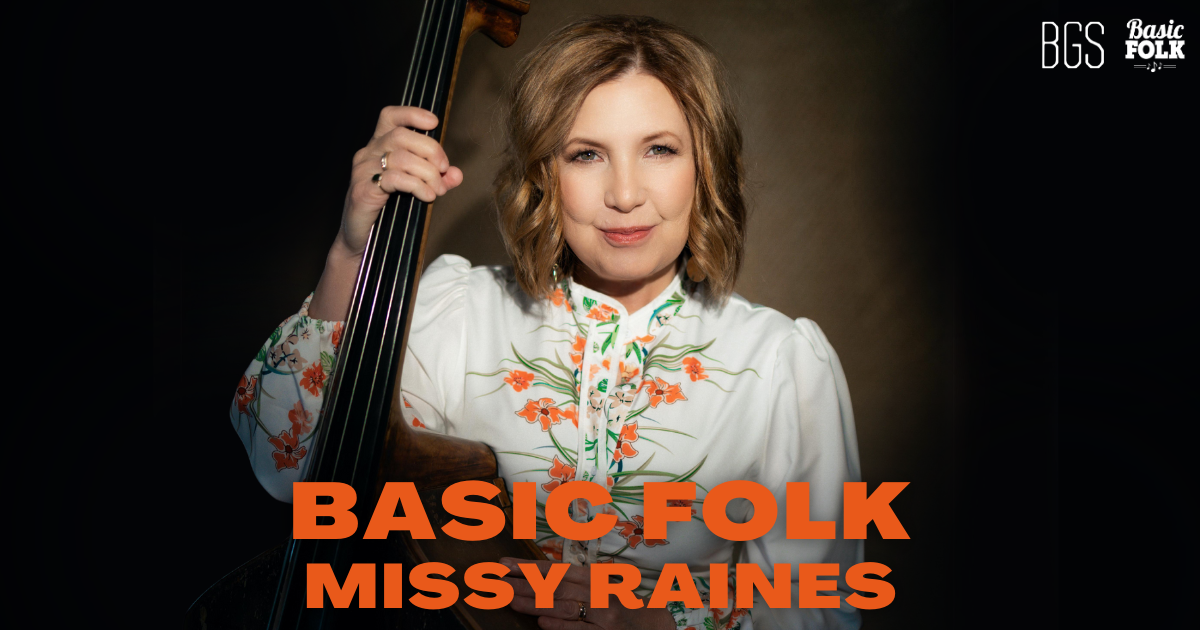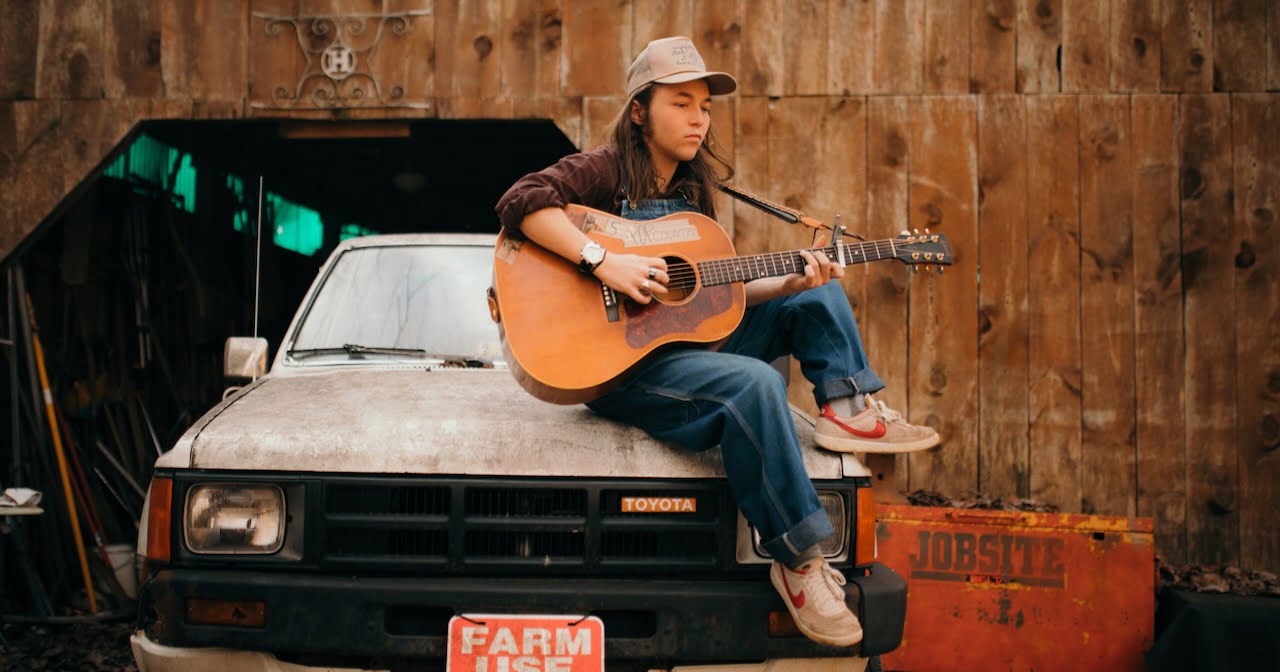On October 11, singer-songwriter Woody Platt stood onstage at 185 King Street, a cozy music venue in the depths of the small mountain town of Brevard, North Carolina. And what was supposed to be an album release party for Platt’s Far Away With You became a fundraiser for flood victims of Hurricane Helene, which devastated the region last month.
“I was conflicted about even having a show,” Platt says. “But, then I remembered that music is healing, helpful, and great for the community. It’s also a wonderful way to raise money.”
Dubbed “Rescue Carolina,” the sold-out benefit concert was a genuine celebration of togetherness after the traumatic events and during ongoing struggles of Asheville and greater Western North Carolina. Platt and his wife, acclaimed singer-songwriter Shannon Whitworth, came up with the idea for “Rescue Carolina.”
“Why don’t we use our platform, this show, and our relationships in the community to figure out what’s the quickest and more direct use of these donations to those who need help?” Platt says.
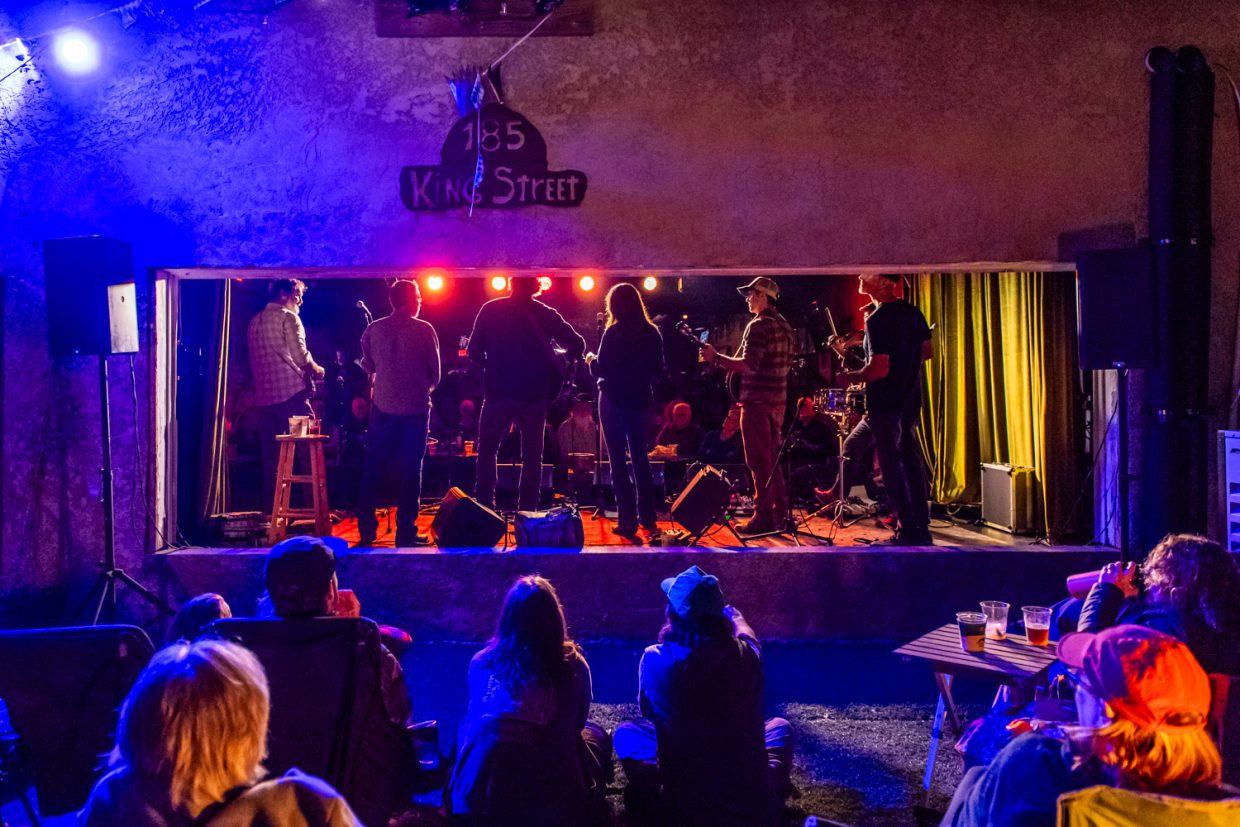
At last count, the GoFundMe page for “Rescue Carolina” has raised more than $107,000 and counting. The funds will be doled out to an array of hyperlocal nonprofit organizations, small businesses and residents in need.
“There are many individuals that lost their homes and businesses that were totally destroyed,” Platt noted. “It’s pretty bad out here.”
A Brevard native who still calls Transylvania County home, Platt is the founder and former frontman for the Grammy-winning Steep Canyon Rangers. Formed almost 25 years ago while students at the University of North Carolina at Chapel Hill, the Rangers are a marquee act in the Americana and bluegrass realms.
“It was just us jamming in the college dorm rooms,” Platt recalls. “And then, all of a sudden, we got excited and hit the road.”
In 2022, Platt decided to step away from the Rangers in a genuine effort to spend more time with his wife and young son. And to simply slow down, maybe go fly fishing more – another lifelong passion that’s now parlayed itself into a private guiding service led by Platt.
“I have a habit of turning all my hobbies into careers,” Platt chuckles. “You know, I did 23 years with the Rangers and did enough years on the road to pay my dues out there.”
And yet, even though Platt stepped off the bus, literally and figuratively, the music hasn’t stopped. Quite the contrary. It flows seamlessly and endlessly through the heart and soul of the troubadour like the ancient rivers and creeks in Southern Appalachia.
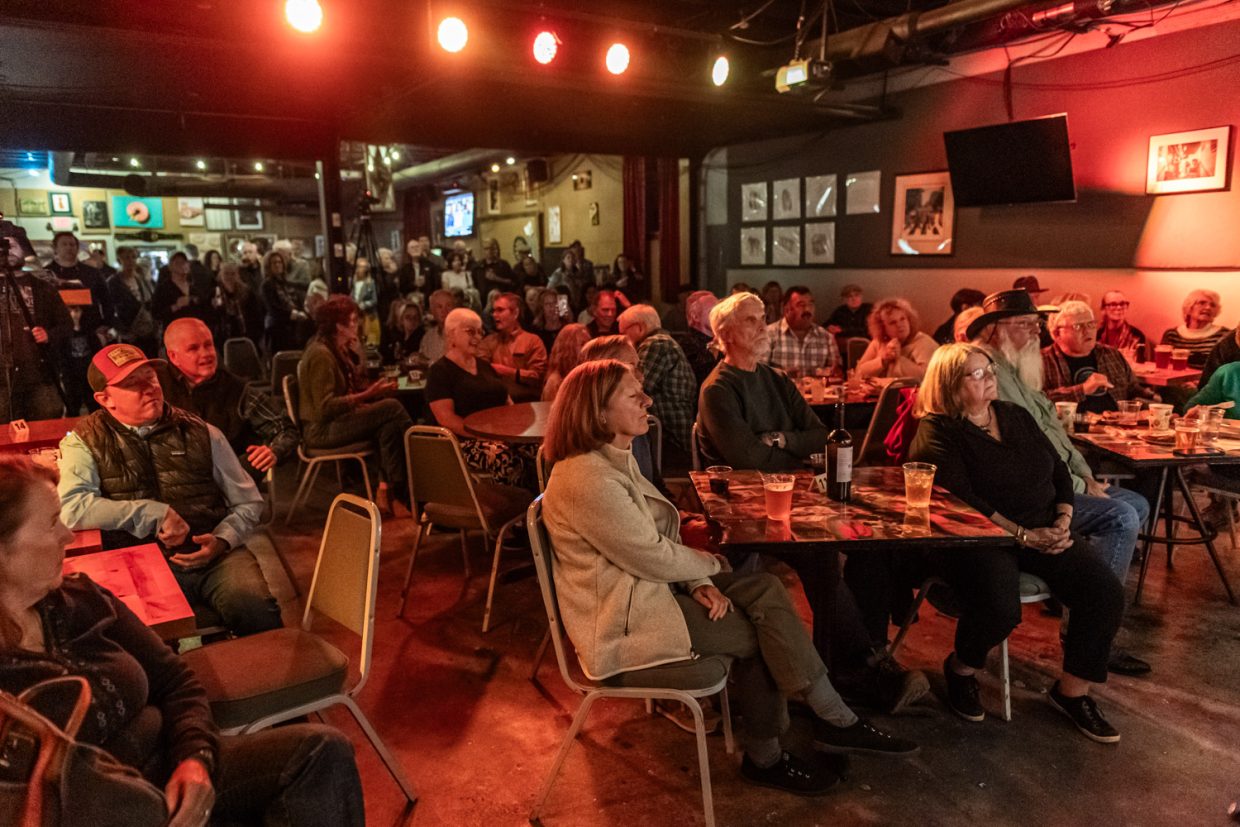
You’re no stranger to philanthropic causes and have always been involved with charities. Why is it so important to continually be involved in these efforts? Because it can take a lot out of you to do it.
Woody Platt: Yeah, it does, man. Honestly, I come by it real naturally. My whole life, my family has always been at the forefront of fundraising. My mom started the local Boys and Girls Club chapter here. And not just started it, but raised the money for a really significant facility that now services hundreds of kids. It’s a way of life for my family. I really don’t know any other approach than to get in the trenches and try to give back, you know? I mean, I’ve been really lucky, in my life and my career, to have had a lot of community support. And it’s very natural to want to turn back around, if you can, and give back.
And we’re still not out of the woods with efforts here in Western North Carolina. Not by a long shot. Everyone’s just kind of dazed at this point, where it’s like a kind of a “Twilight Zone” thing.
Yeah. I’ve used that term “Twilight Zone” so many times. There’s normalcy and there’s work. People still have to pay the mortgages and do the things they’ve always done. But, you don’t have to look too far to just see somebody in total devastation. You turn the corner and everybody’s all happy up on [a] hill, and then you just go a hundred yards down and you start seeing the devastation. I hope we don’t have to see this again. I tell you what, I hope this was truly a thousand-year flood.
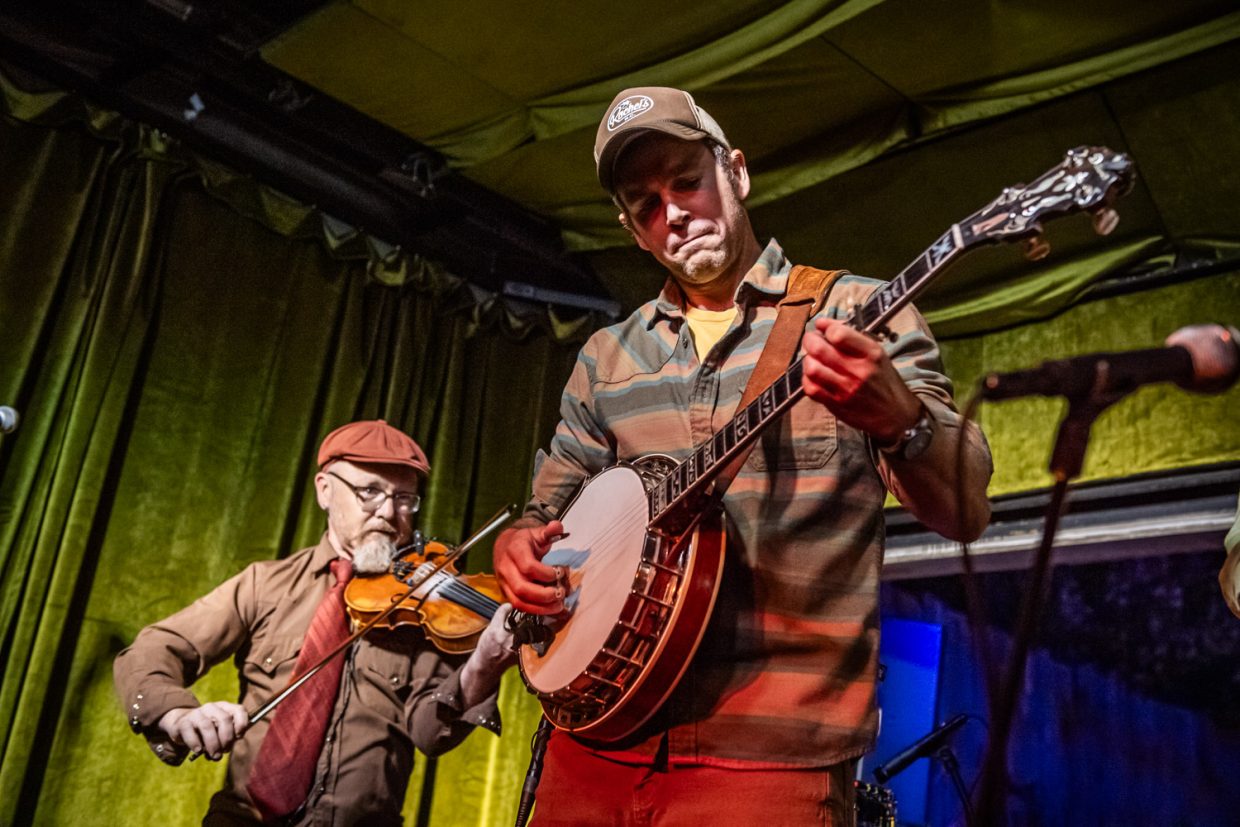
Obviously you scheduled the album release party prior to the flooding and it was aiming to be a special night. But, it just felt like way more of a special occasion. What did that night mean to you?
There were so many layers to that. The first layer was that I’ve never in my career done a Woody Platt concert, just a show that has my name on it. I’ve always done band shows or collective shows with other musicians, but I never just had a show that was sort of centered around music that I made and recorded. So, that in itself, even leading up to the event, had a special feeling to me because that’s a long time coming. And then, you had the hurricane and how the show quickly needed to pivot to a fundraiser – put the record in the backseat and the fundraiser in the front seat. And it kind of created some anxiety, but excitement. During the show, I [played] a lot of the songs from local songwriters right here in Transylvania County. And I invited them all to come and sing a snippet of their song in its original form before I did my version of it back-to-back throughout the night – that made it even more familial and really Transylvania County-centric. It was a special night.
You’ve been playing music for a long time, but it feels like this fresh avenue with the new album. But, how is this all going to work moving forward? Are you going to tour, play with a band, case-by-case gigs?
Well, one of my favorite things about music right now, Garret, is that when I play, it’s just solely about the joy. Not that music wasn’t joyful before, but it’s just coming from a really easy place right now. I’m not worried about the money as much or worried about the tour and all the gigs that you need to put together when you’re full-time on the road. You need to put together a robust [touring] schedule and that can weigh on you a little bit. It’s just the nature of the music business.
So, I feel like I’m playing music from a really free place, and that’s made it so fun that I’ve kind of wanted to do a little more of it. Shannon and I have a band together, and we have sort of a fixed lineup where we play [out] a little bit. This project and this band that I played with the other night, we’re going to play some, but not much. Just enough to scratch that itch and enjoy music in its just simplest form, which to me is just wonderful. I do anticipate a handful of gigs, but there’s no sort of pressure attached to it. It’s a fun place to be.
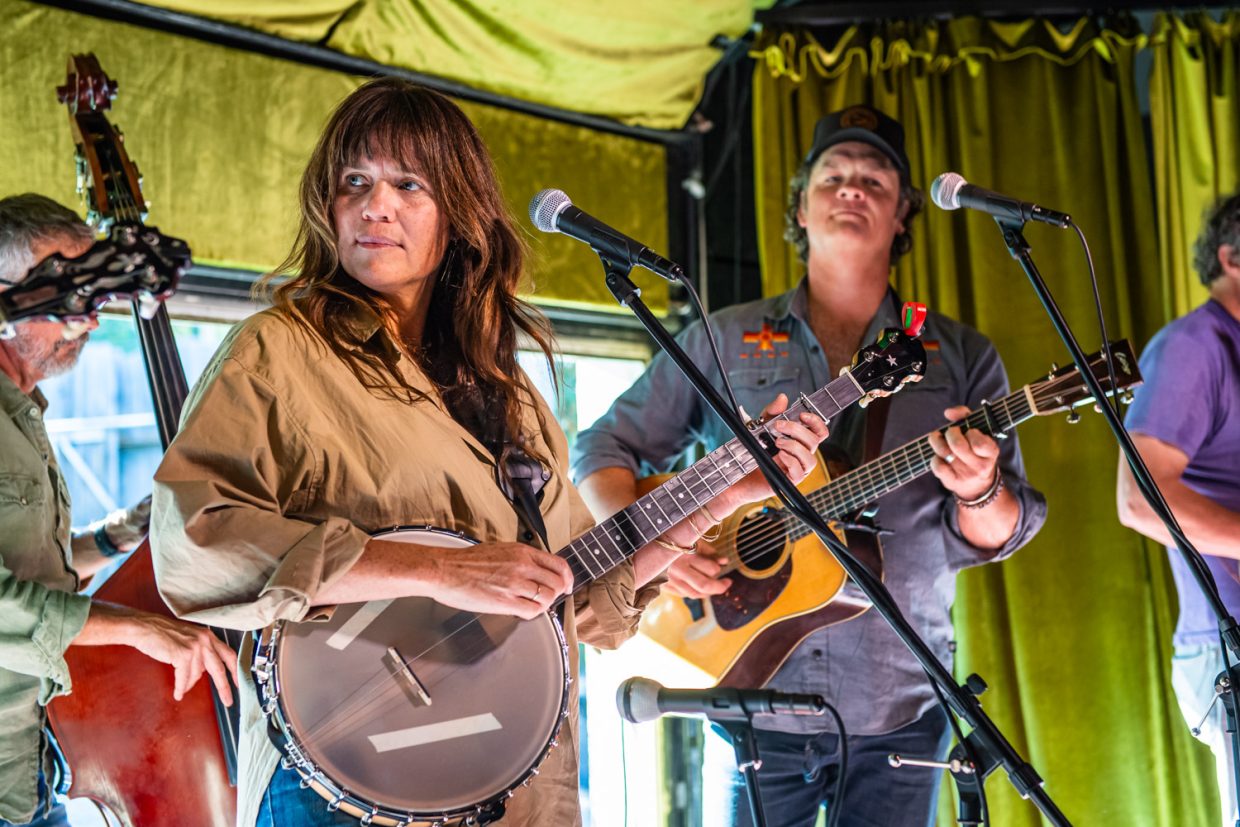
Well, it’s where you’ve always wanted to be.
A hundred percent. And that’s where it started early on. You know, with the Rangers, we got so many offers and were so busy for so long. It was incredible and such a fun ride, but it’s one of those things [to be on the grind].
The Rangers are such a freight train with their touring. Then you wonder, “Should I step off the train?” or “What’s going to happen when I step off the train?” But, you stepped off the train and you found stability in your life.
Yeah, it’s pretty crazy. Somebody asked me just yesterday, “Did you anticipate making a record? Did you anticipate playing these gigs with these different guys and developing a new repertoire?” And honestly, I didn’t. I just knew I needed to step off that train and the rest would unfold naturally. And that’s what’s happening, you know? And I was so flattered to get tucked in with Compass Records and work with [label owners] Alison [Brown] and Garry [West].
You talk about being in a free space, and that’s the way I felt listening to the album. It felt very light and that you had a kick in your step, like momentum was moving forward. There’s no heaviness on the record.
And I’m glad. I just wanted it to come from a really easy place, and get to sing with Shannon. We sing together all the time, but we’ve recorded together very little. And so, with having her there, I wanted it to be easy, fun, fresh, happy and all the things.
And that’s where you’re at right now.
You better believe it, man.
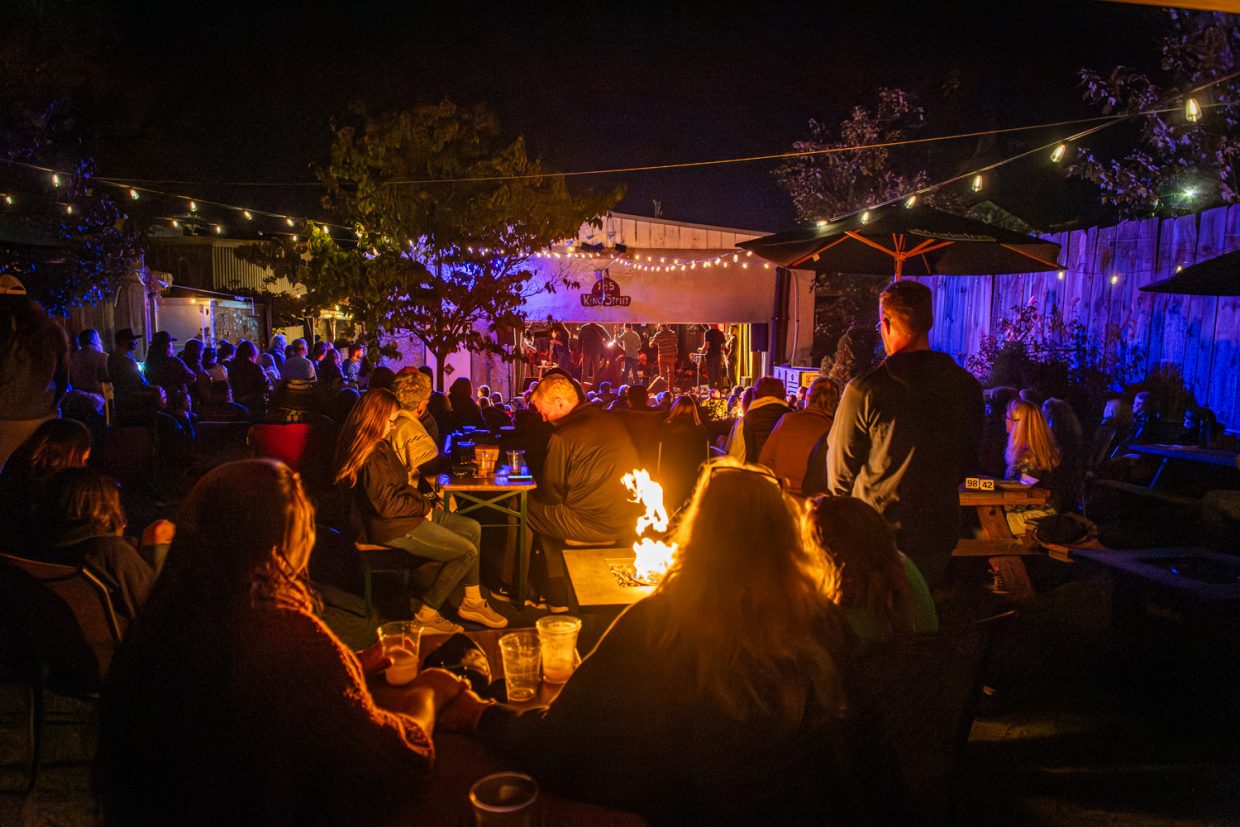
When you first left the Rangers, I remember you telling me that the goal was: more time with family and more fishing, with one foot still in music.
The goal was family first. I only got one little boy, and I felt like I was missing a lot of that. When I go to the studio now, it’s like a day job, where I come right home. And when I go fishing, it’s just a few hours and I come home and sleep in my own bed. I’ve got a nice balance of those three things you mentioned. Still being front and center with the family, enjoying [fishing], and keeping the music in a good place — it’s kind of a dream come true at this point.
(Editor’s Note: Though Rescue Carolina has reached their GoFundMe fundraising goal, donors can still give to continue to support hurricane relief in Western North Carolina here.)
Photo Credit: All images by David Simchock.
